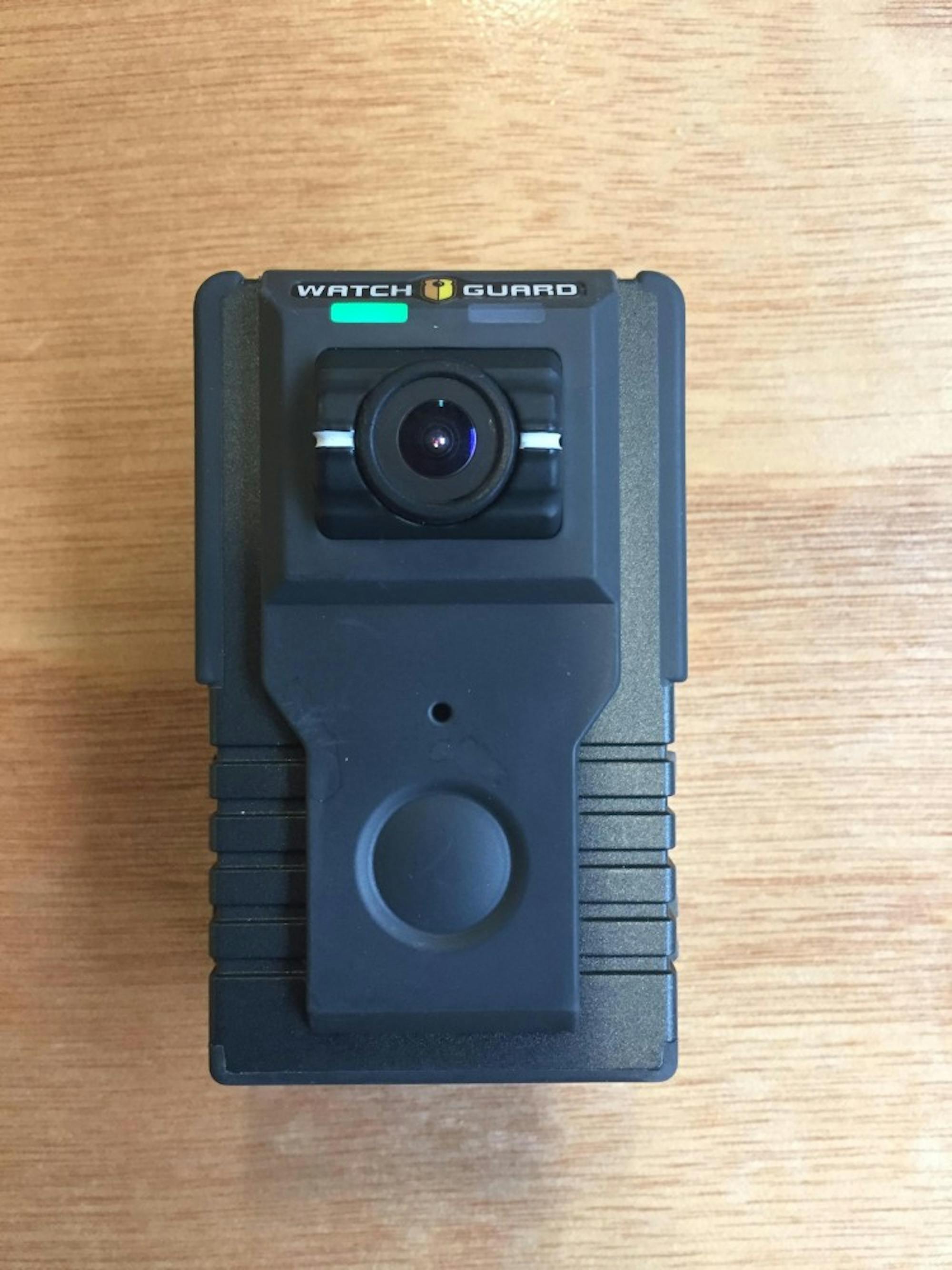The Hanover Police Department is now equipping its officers with body-worn cameras. The new technology, which the department began using on July 23, will be used to record crime and accident scenes, according to chief of police Charlie Dennis.
“We certainly feel that it’s a great technology and a great tool to add to the Hanover Police Department,” Dennis said. “I think it strengthens police transparency and helps improve our performance.”
According to a press release sent by Dennis on July 20, the Hanover Police Department chose WatchGuard VISTA Wi-Fi Body Worn Cameras because of their compatibility with the department’s existing patrol cruiser system. The cameras, which are black and about three inches in length and two inches in width, will be worn by uniformed Hanover police officers near or at chest level of their outermost layer of clothing, according to the press release.
Dennis said the cameras were purchased through a combination of the Hanover Police Department’s own budget process and a 50/50 match grant.
The press release also stated that the cameras will be used in conjunction with the department’s existing cruiser cameras. While the body cameras can be activated when officers press a button that reveals a red indicator, Dennis added that they will also activate if a cruiser’s emergency lights are turned on, which also turns on the cruiser cameras.
Additionally, police captain Mark Bodanza said that an officer’s camera would also activate if he approached a location where another officer’s body camera was already recording. Bodanza remarked that while the cameras will also be utilized during motor vehicle stops and interactions where there is a “potential criminal investigation” in process, they will also serve as training tools for the department. Furthermore, Bodanza said that the cameras will also be used in court processes.
“If there’s a complaint against an officer or a dispute about the facts of a case, [the cameras] can be used to review the situation, so that what happened and what was recorded can be seen on camera by either the investigator or by the individual who was involved,” Bodanza added.
While Bodanza said he believes that the police department and the local community have “great relations,” he remarked that the body cameras would only continue to build on the relationship by increasing accountability.
Interim director of Safety and Security Keysi Montás echoed Bodanza’s sentiments, saying that he viewed the department’s implementation of the cameras as a positive.
“I think it’s an excellent decision,” Montás said. “It’s a great step in providing a tool of transparency for the services and for the community that they serve.”
Montás said that it is highly unlikely that Safety and Security would implement body-worn cameras since his department primarily deals with situations involving health, privacy and safety.
Anthony is a '20 from Dallas, TX. Anthony plans to major in Film & Media Studies at Dartmouth, and decided to join The D to further his passion for writing. In addition to working with The D, Anthony considers himself a passionate supporter of the Dallas Cowboys and spends his days watching movies, admiring fine art, and using the Oxford comma.




![HONEYJOON_[Ines Gowland]_4.PNG](https://snworksceo.imgix.net/drt/7af2efc8-1bd1-4001-b754-e2718ce663b8.sized-1000x1000.PNG?w=1500&ar=16%3A9&fit=crop&crop=faces&facepad=3&auto=format)